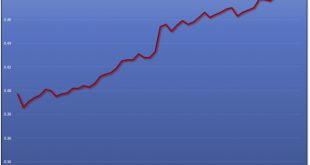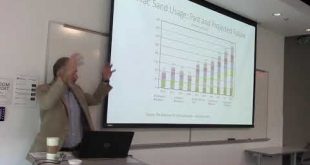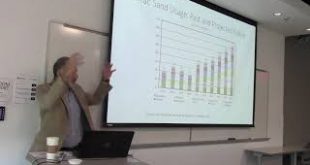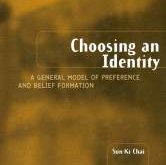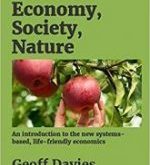from Asad Zaman In line with the pedagogical mission of this blog, I will be writing up a sequence of posts which explain the concept of a statistical distribution. As has been pointed out by numerous authors, a fundamental mistake in understanding concepts of uncertainty and probability was made in the early 20th Century, when views of Keynes and Knight were rejected, and ideas of Ramsey, De-Finetti, and other subjectivists were accepted. To set things right, we have start from scratch,...
Read More »What’s wrong with Krugman’s economics?
from Lars Syll Krugman writes: “So how do you do useful economics? In general, what we really do is combine maximization-and-equilibrium as a first cut with a variety of ad hoc modifications reflecting what seem to be empirical regularities about how both individual behavior and markets depart from this idealized case.” But if you ask the New Classical economists, they’ll say, this is exactly what we do—combine maximizing-and-equilibrium with empirical regularities. And they’d go on to...
Read More »How economists came to ignore the natural world
She’s right. One of the reasons nations fail to address climate change is the belief that we can have infinite economic growth independent of ecosystem sustainability. Extreme weather events, melting arctic ice, and species extinction expose the lie that growth can forever be prioritized over planetary boundaries. It wasn’t always this way. The fairytale of infinite growth—which so many today accept as unquestioned fact—is relatively recent. Economists have only begun to model...
Read More »Trump’s trade war with China: Is it about to end?
from Mark Weisbrot The latest de-escalation of the trade war with China — with exemptions from some tariffs on both sides — has left markets uncertain as to whether it will end before there is serious escalation. But if I were managing a hedge fund, I would bet on it. To see why, we must start with Trump himself. Distraction is Trump’s modus operandi; this was true for his 2016 campaign and he must have concluded from its success that this was also the best way to govern. Trump’s trade...
Read More »“Maybe we should change the system”
from David Ruccio On behalf of millions of young people striking on behalf of climate justice, 15-year-old Greta Thunberg excoriated world leaders for “moving forward with the same bad ideas that got us into this mess.” Our civilization is being sacrificed for the opportunity of a very small number of people to continue making enormous amounts of money. . . Until you start focusing on what needs to be done rather than what is politically possible, there is no hope. We cannot solve a...
Read More »There is no economic justification for drilling in the Arctic Wildlife Refuge
from Dean Baker Earlier this month, the U.S. Department of the Interior released its final environmental impact study on plans to drill for oil and gas in the Arctic National Wildlife Refuge (ANWR). While the study noted environmental risks, it gave the go-ahead for drilling in this incredibly sensitive area. This summer, my small town of Kanab, Utah, agreed to sell water to a frac sand mine and processing plant that would be operating just over 10 miles from Zion National Park. The...
Read More »The Political Economy of Frac Sand Mining in Southern Utah – Dean Baker
Senior economist Dean Baker outlines the economic impact of frac sand mining in the small Southern Utah town of Kanab. Dean Baker is senior economist at the Center for Economic and Policy Research in Washington, DC. He is frequently cited in economics reporting in major media outlets, including the New York Times, Washington Post, CNN, CNBC, and National Public Radio.
Read More »The Political Economy of Frac Sand Mining in Southern Utah – Dean Baker
Senior economist Dean Baker outlines the economic impact of frac sand mining in the small Southern Utah town of Kanab. Dean Baker is senior economist at the Center for Economic and Policy Research in Washington, DC. He is frequently cited in economics reporting in major media outlets, including the New York Times, Washington Post, CNN, CNBC, and National Public Radio.
Read More »The ‘rational expectations’ hoax
from Lars Syll It can be said without great controversy that no other theoretical approach in this century has ever enjoyed the same level of ubiquity throughout the social sciences as the rational choice approach enjoys today. Despite this ubiquity, the success of the approach has been very tenuous. Its advance has been accompanied by an intense debate over its relative merit. The approach has been subject to the usual criticism of blatant inaccuracy given by outsiders to any would-be...
Read More »The study of economies needs to be fundamentally reworked.
from Geoff Davies The study of economies needs to be fundamentally reworked. The dominant approach has been in a pre-scientific state, akin to medicine before Pasteur. It has not even been in a state comparable to Ptolemaic astronomy, which did make usefully quantified predictions of planetary positions in the sky. We need to return to fundamental questions. What is the nature of an economy? What is the purpose of an economy? How does an economy relate to the larger society and natural...
Read More » Real-World Economics Review
Real-World Economics Review


